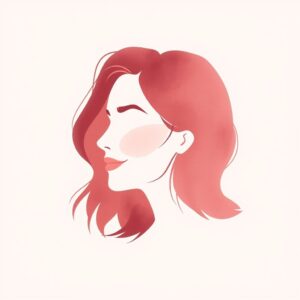Red Flags in Dating: 15 Warning Signs You Shouldn’t Ignore
The experiences shared in this article are based on real emotional journeys, but all personal details are anonymized and used with the explicit written permission of the clients. Any resemblance to actual persons, living or dead, is purely coincidental. We are committed to treating all client stories with the utmost confidentiality and respect.
The Client Who Almost Missed the Signs
Six months before the engagement party, my client Ella sat across from me, nervously twisting her ring.
“He’s perfect, except…” She trailed off, recounting how her fiancé had “playfully” mocked her tendency to misplace keys and miss appointments.
“It’s just his humor,” she insisted when I asked how it made her feel.
At their engagement celebration months later, I watched him interrupt her story about their New Orleans trip.
“You’d forget your head if it wasn’t attached,” he smirked as she described getting lost.
The room laughed; her knuckles whitened around her champagne flute.
When she called me two weeks later—mascara streaking her Zoom screen—the truth tumbled out: the “jokes” about her scatterbrained habits, the way he’d “accidentally” double-booked dates to test her loyalty.
“I told myself he was stressed about the wedding,” she cried. “But you warned me to watch for patterns.”
Ella’s story isn’t unique. In my 10+ years as a relationship coach, I’ve seen brilliant, self-aware clients rationalize red flags because love feels like proof.
Let’s dismantle the lies we tell ourselves when our hearts outshout our instincts.
Save this article for later—Pin it to Pinterest and come back when you need it! 📌

1. They Dismiss Your Concerns with “You’re Too Sensitive”
Invalidation erodes boundaries
A partner who treats your feelings as overreactions trains you to doubt your instincts.
Examples to watch for:
- “It was just a joke—why can’t you take a laugh?”
- Rolling eyes when you express hurt
Client story: Emily questioned her boyfriend’s flirtatious texts. He accused her of “paranoia.” Later, she discovered emotional infidelity. “I wish I’d trusted my gut instead of his gaslighting.”
Your move: Say, “I’d like to talk about this again when you can take my feelings seriously.”
2. They Rush Commitment
Love-bombing isn’t romance
Pushing for labels, living together, or marriage before trust is built often masks insecurity.
Red flags:
- “I’ve never felt this way before” on date two
- Pressuring you to cut ties with friends/family
Danger zone: A client moved in with a partner after three weeks. He isolated her from friends, claiming “we don’t need anyone else.”
Slow it down: “I want to enjoy getting to know you—let’s revisit this in a few months.”
3. They Keep You a Secret
Privacy ≠ secrecy
If they avoid introducing you to anyone in their life after 4–6 months, ask why.
Questions to consider:
- Do they crop you out of social media photos?
- “My family’s weird about dating”… for eight months straight?
Personal note: A friend dated someone for a year who “wasn’t ready” for her to meet his coworkers. Turns out—he wasn’t ready to break up with his girlfriend.
4. Their Anger Feels Dangerous
Fear ≠ respect
Slamming doors, “playful” threats (“You’re lucky I love you”), or silent treatments are abuse precursors.
Safety check:
- Do you rehearse conversations to avoid setting them off?
- Have friends/family expressed concern?
Hard truth: 1 in 4 women experience severe physical violence from a partner. Subtle aggression often escalates.
Exit plan: Confide in someone you trust. Visit TheHotline.org for confidential support.
5. They “Jokingly” Insult You
Mockery disguised as humor
Partners who chip away at your confidence often start “playfully.”
Hurtful patterns:
- “You’d be so pretty if you lost 10 pounds.”
- “Aw, you tried!” about your career achievements
Real-life example: A client’s partner “teased” her about being “bad with money” until she stopped sharing financial goals. His punchline? Control.
Respond: “When you say ___, it makes me feel ___. Is that your intention?”
6. They Weaponize Your Past
Trauma used as ammunition
Confessing childhood struggles shouldn’t become fodder for arguments.
Cautionary signs:
- “No wonder your parents treated you that way.”
- Bringing up insecurities during conflicts
Client’s breaking point: After sharing her sexual assault history, her boyfriend accused her of “overreacting” to his aggressive advances. “I finally realized he wasn’t safe.”
7. Their Stories Don’t Add Up
Chronic inconsistencies = potential lies
A true partner has nothing to hide.
Investigate:
- Do their weekend plans always involve “helping a friend” sans details?
- Do they forget details they previously shared?
Case study: A client’s “entrepreneur” boyfriend couldn’t name his company’s address. Spoiler: He was unemployed—and married.
8. They Treat Service Workers Poorly
Character shows in small moments
How they talk to waiters, cashiers, or Uber drivers predicts how they’ll treat you during conflicts.
Observe:
- Do they tip fairly?
- Do they blame others for minor mistakes?
Pro tip: Notice their road rage. Aggressive driving often mirrors relationship behavior.
9. They Can’t Apologize
Defensiveness destroys trust
A partner who won’t take accountability will keep hurting you.
Unhealthy responses:
- “I wouldn’t have yelled if you hadn’t nagged.”
- Ghosting after arguments
Turnaround test: Share a minor hurt. Do they listen or counterattack?
10. They Punish Your Success
Jealousy ≠ love
Healthy partners celebrate wins, even small ones.
Red flags:
- Downplaying your promotion: “Your company hands those out like candy.”
- Skipping your graduation for a “work emergency”
Client victory: Lisa left a man who mocked her art studio opening. Now she’s dating someone who helps her hang canvases.
11. They Demand Constant Access to You
Control ≠ care
Needing texts every hour or trackers breeds dependency.
Signs of obsession:
- Blowing up your phone if you don’t reply instantly
- Calling your friends to “check on you”
Boundary script: “I need space to focus at work. I’ll call you at 7 PM.”
12. They Test Your Loyalty
Games aren’t romantic
Healthy love doesn’t require “proving” your commitment.
Toxic tests:
- “If you loved me, you’d ___.”
- Making you choose between them and a friend
Science says: Manipulative behavior correlates with high narcissism traits.
13. They Sabotage Your Health
Love shouldn’t harm you
Pressuring you to skip meds, drink excessively, or avoid therapy is dangerous.
Real harm: A client’s boyfriend hid her anxiety medication, claiming “You just need me.”
Safety first: Keep prescriptions locked and confide in your doctor.
14. They Expect You to Parent Them
You’re a partner, not a project
Grown adults should handle basics: laundry, jobs, emotional regulation.
Infantilizing red flags:
- “I lost another job… can I move in?”
- Making you manage their doctor appointments
Tough love: “I care about you, but I need a teammate, not a dependent.”
15. Your Gut Says “Run”
Your body keeps score
That sinking feeling when they text isn’t anxiety—it’s wisdom.
Listen to:
- Chronic stomachaches before dates
- Friends’ unanimous dislike of them
Science-backed: Intuition often detects danger before conscious awareness.
Final Words from The Darling Code
Red flags aren’t flaws to fix—they’re warnings to heed. If you’re questioning your relationship:
- Journal about three moments that felt “off.”
- Tell one trusted person what’s happening.
- Plan a safety exit if needed (cash, documents, code words).
You deserve love that feels like peace, not puzzle pieces that never fit.
With heart,
The Darling Code
P.S. Save this to your “Dating Wisdom” Pinterest board!
Today’s action: Text a friend: “Can we grab coffee? I need to talk about something that’s been on my mind.”
Got value from this article? Pin it to Pinterest for easy reference and help others discover it! 🌟


ABOUT THE AUTHOR
Carsey, Founder, Editor-in-Chief & Relationship Coach
Carsey is the heart and mind behind this space. As a Relationship Coach and Editor-in-Chief, she blends practical advice with storytelling to help you navigate love, connection, and everything in between.






